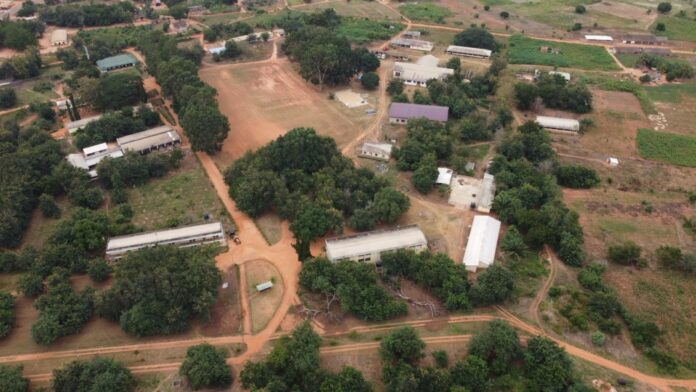The sprawling grounds of Ohawu Agricultural College tell a story of potential constrained by decades of neglect.
With buildings dating back to Ghana’s independence era still housing modern agricultural training, the institution that trains future farmers now struggles with inadequate infrastructure, outdated facilities, and basic survival needs.
As Ghana’s only agricultural college in the Volta Region, Ohawu is tasked with training students in crop irrigation, aquaculture, and sustainable farming. Yet, the campus itself lacks potable water, reliable transportation, sufficient laboratories, and adequate accommodation.
“We teach students about efficient water management for crops, but we cannot provide them clean water to drink,” laments Principal Ernest Mawufemor Kwesi Abiwu. His frustration is evident as he surveys cracked lecture blocks, leaking roofs, and obsolete laboratory equipment that no longer serve the demands of modern agriculture.
Daily Struggles of Students
The college’s 400 students share facilities originally built for far fewer. Many must fetch water daily before lectures, balancing their studies with basic survival.
“Sometimes we have to choose between attending lectures and fetching water,” says Charlotte Yawa Sodzedo, a General Agriculture student.
Inadequate hostel space forces some into overcrowded rooms, while others rent makeshift housing off-campus. The college’s single bus frequently breaks down, disrupting farm visits and field practicals. Laboratories—essential for agricultural training—still carry equipment from the 1960s, unfit for today’s soil science, plant pathology, and animal production courses.
With only 18 lecturers, the staff-to-student ratio is stretched thin, leaving little room for the hands-on training agriculture requires.
A Region Left Behind
The neglect of Ohawu mirrors the educational gap in southeastern Ghana. Principal Abiwu describes the area as a “university desert,” noting that many young people migrate to distant institutions or abandon higher education altogether.
Traditional leader Torgbui Kordor III laments the painful exodus of talent from the region: “Our brightest youth are forced to leave, and many never return.”
Promises and Practicality
Former President John Dramani Mahama’s promise to upgrade Ohawu into a university sparked excitement. But turning colonial-era buildings into a modern university remains a daunting task.
“The transformation must be holistic,” Principal Abiwu insists. “We need adequate lecture halls, functioning laboratories, hostels, housing for staff, transport, internet connectivity, and water.”
Holding On Amidst Challenges
Despite its difficulties, Ohawu has introduced new courses in animal health and production to meet evolving agricultural needs. Partnerships with organizations like Canada’s IDRC and the World Food Programme have provided equipment and curriculum support. Certificate-level programs have been phased out in favor of diplomas and Higher National Diplomas.
Yet progress is hampered by infrastructure deficits. Students continue to appeal for the restoration of allowances to ease the burden of high costs, worsened by poor living and learning conditions.
“We are preparing students for 21st-century agriculture using 1960s infrastructure,” one lecturer remarks. “It’s simply not sustainable.”
A Call for Action
The plight of Ohawu Agricultural College underscores Ghana’s broader challenge of matching agricultural development rhetoric with real investment in rural education. Agriculture remains the backbone of the economy, employing more than half the population, yet the flagship institution meant to train its professionals operates under what many describe as unacceptable conditions.
With this year’s Hogbetsotso Festival launch set to take place at Ohawu Agricultural College, stakeholders see the event as an opportunity to draw national attention to the institution’s plight—and to call on government, organizations, and individuals to support its transformation.
For now, students and staff carry on—teaching, learning, and farming under difficult conditions—while holding onto hope that Ohawu’s next chapter will be about real progress, not just promises.
Source: Ivy Priscilla Setordjie
READ ALSO:



